Understanding Work-Life Balance
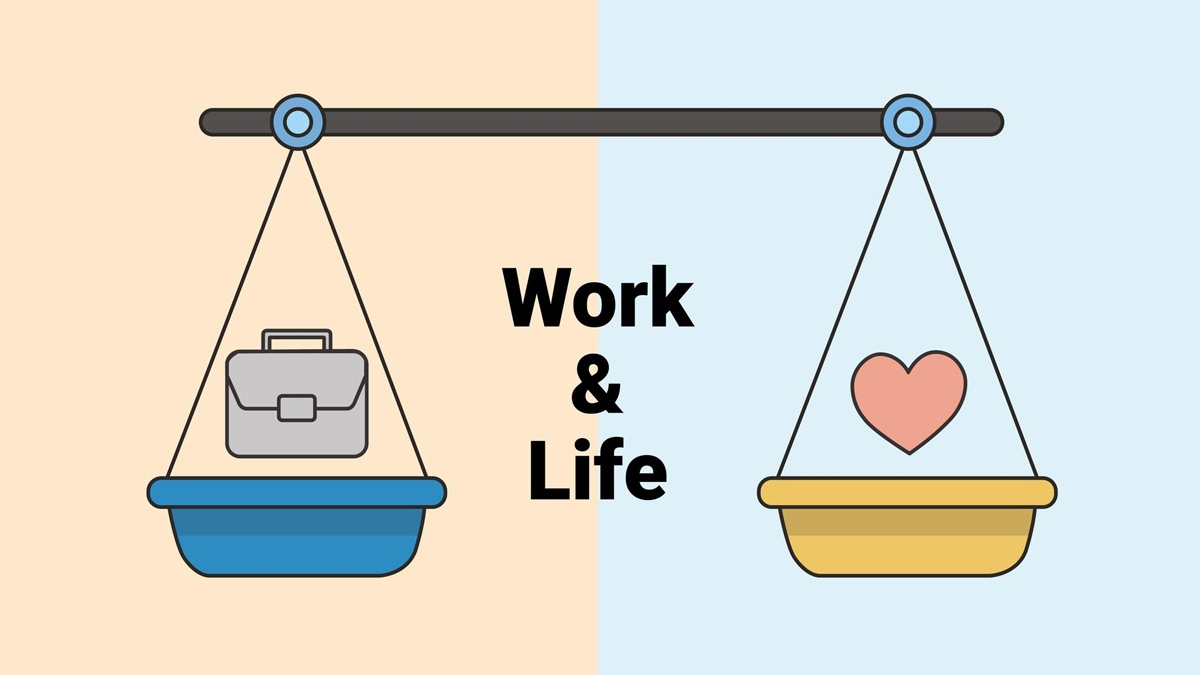
Work-life balance is the equilibrium where a person equally prioritizes one’s career and personal life demands.
A proper balance is highly individualized, varying significantly across life stages and personal values. It encompasses working efficiently in one’s professional role without compromising personal time for health, leisure, and relationships. Achieving this balance is a continuous process, requiring constant adjustment and reassessment of priorities to ensure both work and personal life receive adequate attention.
Work-life balance is defined as a person’s ability to fulfill their family and work responsibilities and fulfill other non-work-related commitments and activities done after work hours and free time. Maintaining a healthy work-life balance is not about allocating equal time to your activities or each aspect of your work. Work-life balance refers to our ability to manage our time properly, allocate our labor appropriately, all while continuing to maintain satisfaction in our personal and professional lives.
DEFINING PRIORITIES
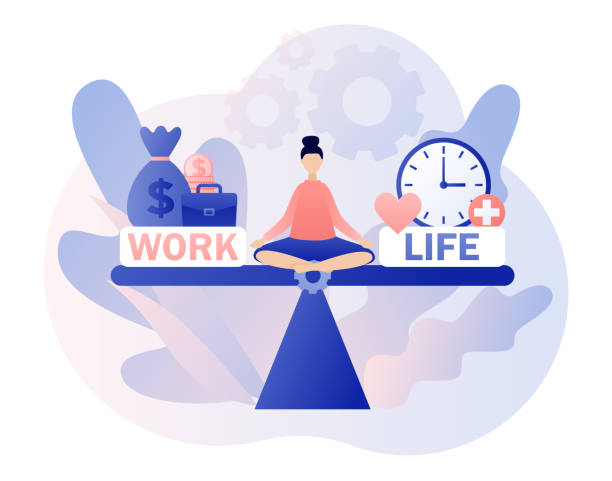
Establishing personal and professional priorities, developing realistic schedules and routines, and educating yourself on time management are all key to maintaining an excellent work-life balance for improved mental health. Work-life balance can include removing tasks and events from your schedule, but there is more to it than that. Even those with heavy workloads can benefit from a balanced schedule without their productivity–in fact, the improvements in mental health as a result of work-life balance could very likely result in increased productivity.
Maintaining a healthy work-life balance requires you to know what a work-life balance looks like for you, and your circumstances. Many people have misconceptions, or no conceptions at all, as to what work-life balance can and should look like, and underestimate its importance.
Signs of Poor Work-Life Balance

Poor work-life balance manifests in various ways, significantly impacting mental, emotional, and physical health.
It occurs when work commitments dominate, leaving little time for personal life, leading to stress, burnout, and decreased overall life satisfaction. Individuals may experience persistent fatigue, difficulty in disconnecting from work, neglect of personal relationships and self-care, and a feeling of being constantly overwhelmed.
These symptoms not only affect one’s personal life but also their productivity and engagement at work. Recognizing these signs early is crucial for making necessary adjustments to restore balance.
Here are some of the most common signs of poor work-life balance:
- Constant Fatigue: Feeling tired all the time, even after resting.
- Frequent Illness: Increased susceptibility to colds, flu, and other health issues due to weakened immune response.
- Neglect of Personal Care: Skipping meals, exercise, and other basic self-care practices.
- Persistent Work Thoughts: Inability to disconnect from work-related thoughts during off hours.
- Reduced Productivity: Despite long hours, productivity and quality of work decline.
- Irritability and Mood Swings: Short temper and emotional reactions over minor issues.
- Insomnia or Sleep Problems: Difficulty falling or staying asleep, impacting overall health.
- Social Withdrawal: Decreasing participation in social activities or spending time with loved ones.
- Physical Complaints: Headaches, back pain, and other stress-related physical issues.
- Lack of Satisfaction: Feeling unfulfilled by both work and personal life achievements.
How Work-Life Balance Impacts Mental Health
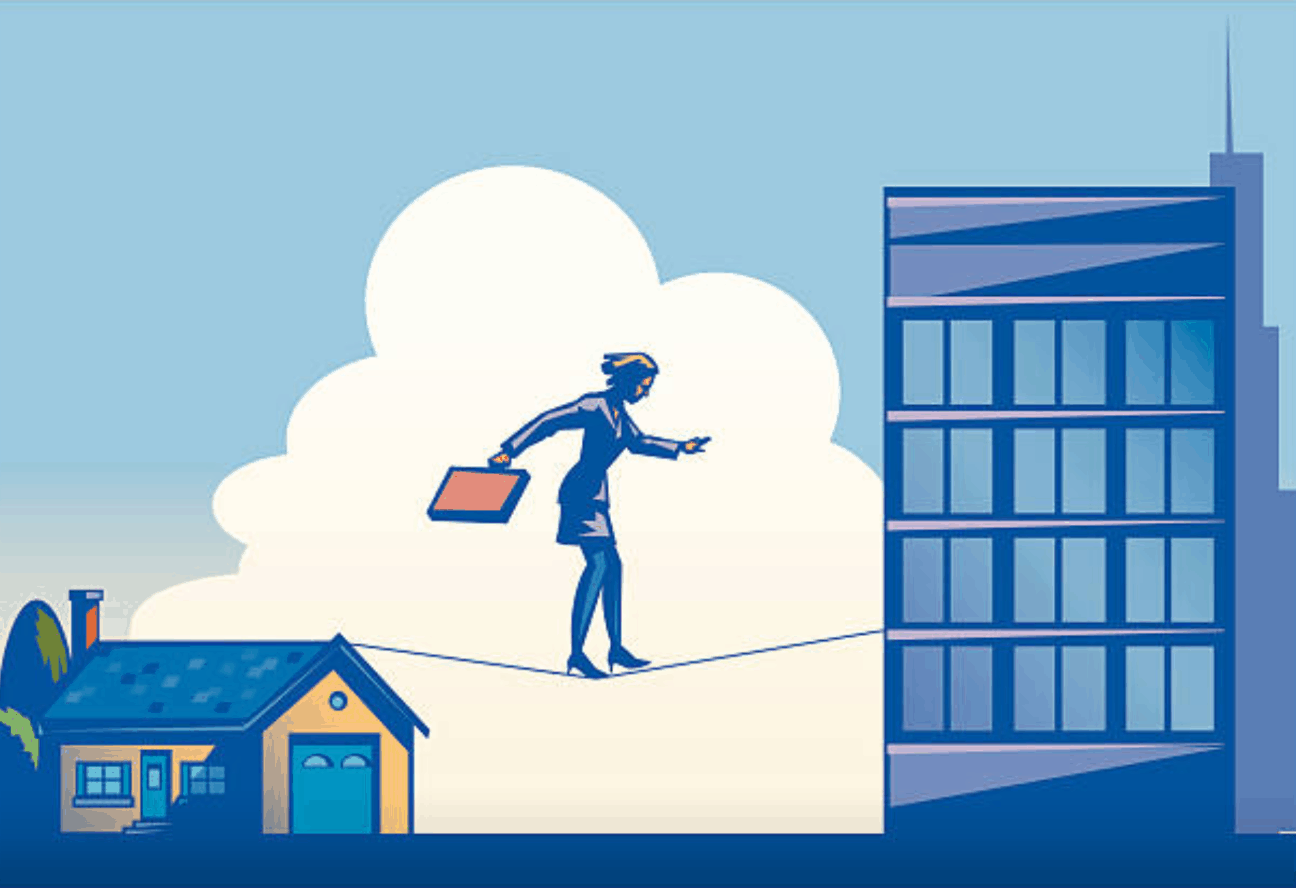
Between heavy workloads, relationships, and personal interests, finding a work-life balance with day-to-day responsibilities can feel overwhelming. Research indicates overworking and extensive hours on the clock can have a negative impact on both employees’ mental health and their companies. If jobs are too demanding, exhausting, or chaotic, it can be challenging to maintain personal success.
Yet, in practice, it can be difficult to surpass unhealthy work habits and achieve a sustainable work-life balance. A healthy work-life balance involves managing time and energy to meet both personal and professional commitments while emphasizing self-care needs and overall well-being. Research suggests finding work-life balance is not an overnight adjustment, but rather a continuous cycle throughout situations and priorities.
Why is work-life balance so important?
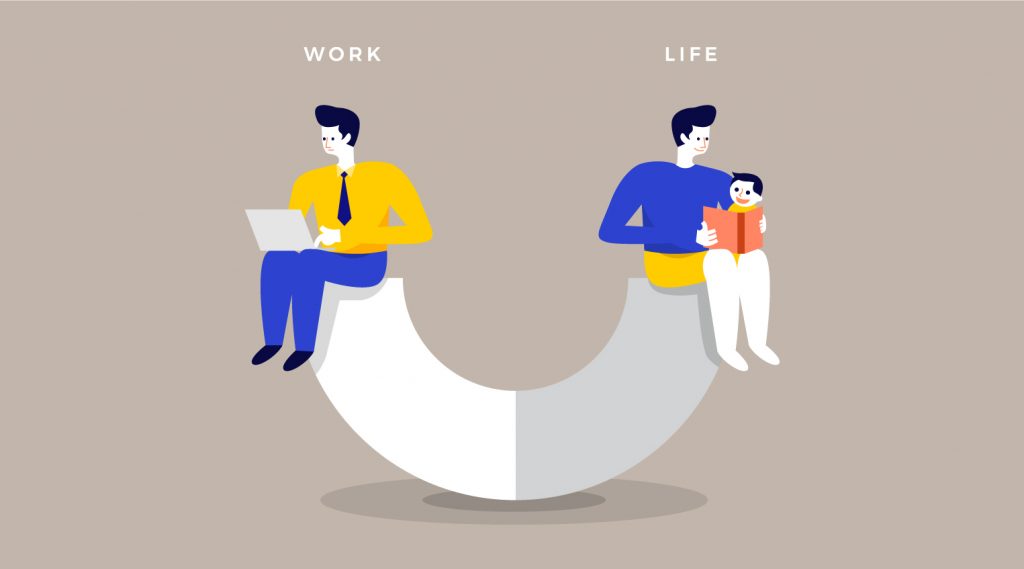
Increased stress levels can weaken immune systems and affect productivity. In the workplace, balanced and happy employees are more productive, take fewer sick days, and feel supported in their roles. To loosen the grip of stress and invite balance back into our lives, try implementing some of these practical steps at work and at home to increase your work-life balance.
At Work
- Set manageable goals and attainable priorities each day to eliminate unrealistic workloads.
- Communicate honestly with colleagues or your supervisor. Suggest practical alternatives to reduce your stress in a calm and rational way.
- Divide heavy projects into smaller tasks to increase productivity.
- Take five and give yourself a break to clear your head.
At Home
- Divide and conquer at-home responsibilities in a clear and outlined way.
- Try not to overcommit and overflow your calendar with activities.
- Stay physically active and treat your body right.
- Share your feelings with friends and family to establish a strong support system.
- Reach out for help if you are consistently overwhelmed. Taking care of yourself is a sign of strength.
Strategies to Improve Work-Life Balance
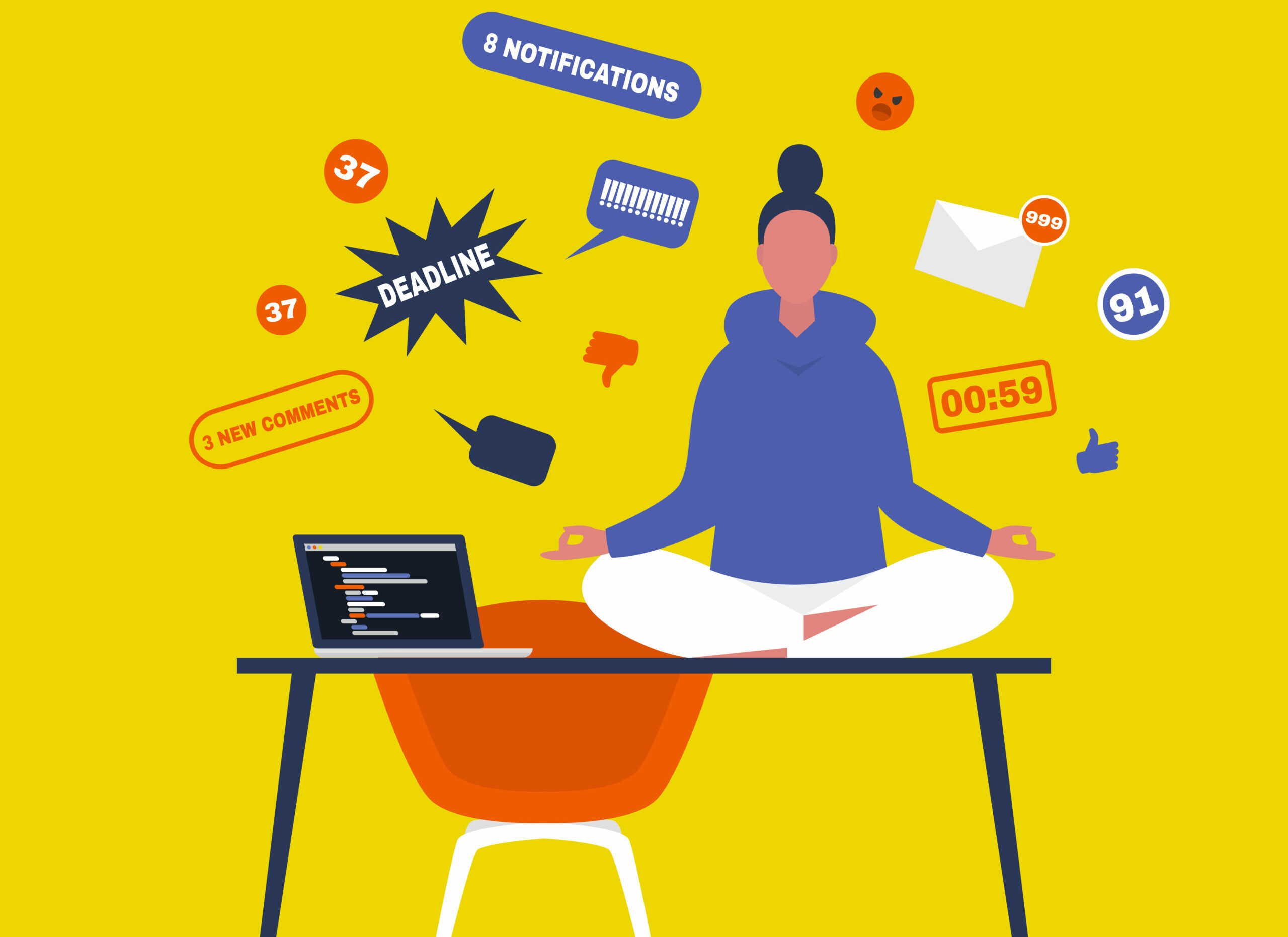
Improving work-life balance requires a multi-faceted approach involving both employers and employees. Employers play a crucial role in fostering an environment that promotes a healthy balance. This can be achieved through various strategies, such as:
- Implementing flexible working arrangements.
- Encouraging the use of paid time off and vacation days.
- Providing access to mental health resources and support.
- Establishing clear boundaries for work hours, including expectations for digital communication outside of these times.
Employees also have a responsibility to set boundaries and to communicate their needs effectively. Some strategies for employees include:
- Prioritizing tasks and setting realistic deadlines.
- Learning to say no to additional responsibilities that could compromise balance.
- Seeking support when overwhelmed, whether from colleagues, managers, friends, or mental health professionals.














Leave a comment